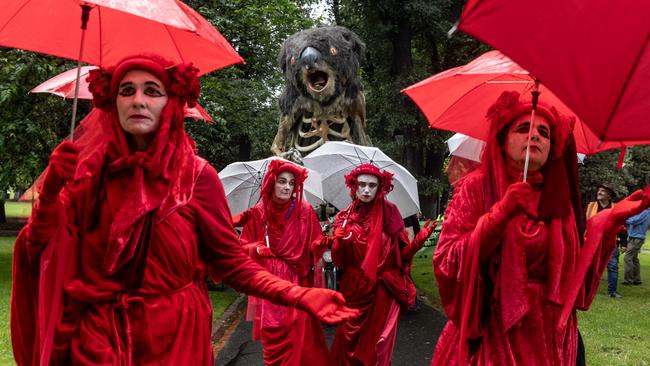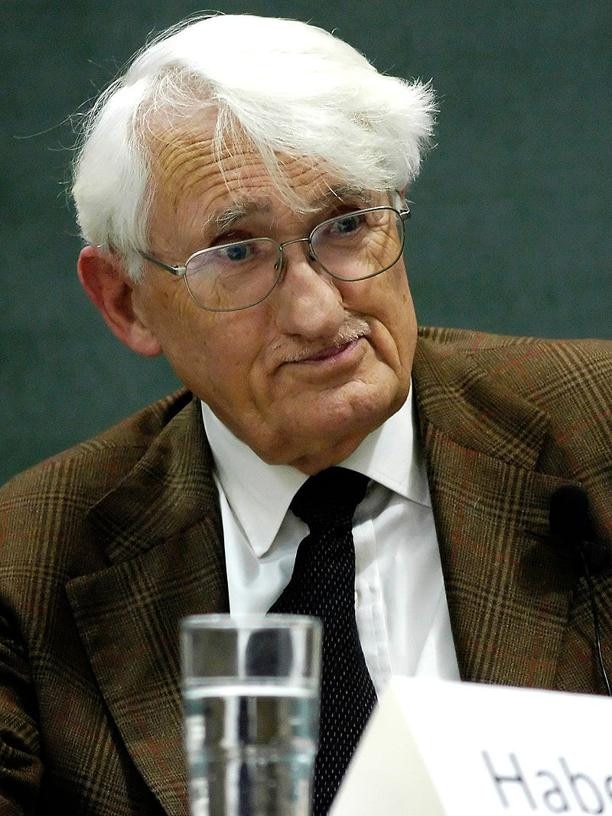
But the year’s tone merely reflects the legitimation, over the past decade, of outrage as the dominant style of political expression.
Of course, politics is inherently antagonistic: it involves a clash between alternatives. Henry Adams had a point when he wrote, way back in 1907, that political competition is “the systematic organisation of hatreds”. The promise of democracy, however, is that it moderates that competition’s excesses, funnelling its passions into well-defined channels that prevent controversy degenerating into limitless conflict.
Quite when that promise slipped our grasp is inevitably hard to determine. But a crucial step was the persecution and near judicial execution of Cardinal George Pell.
More clearly than in any previous case, that maelstrom involved the convergence of virtual lynch mobs on Twitter, unabashedly one-sided reporting by the ABC and SBS, and a political chorus led by the Greens but which included substantial parts of the ALP.

Pell was, no doubt, a scapegoat. Indeed, it was hard, observing that process, not to be reminded of an early definition of that term which, in 1711, said “in most of the Nations of the World, where publick Divisions have prevail’d, they always had People among them (who were forced) to bear Scandal without Guilt, to be Condemn’d without Crime, sent, like the Scape Goat, into the Wilderness with other Men’s Faults upon their Backs, without any regard to their own”.
But the choice of target was no accident. As well as paying for the sins of the church, Pell stood for everything his assailants detested: attachment to tradition; a scholar’s love of the Western canon; and an adamant rejection of the belief that personal identity and sexual preference are mere consumer items, to be adopted and discarded as readily as a snake sheds its skin. Expressed by a Muslim cleric in Lakemba or Broadmeadows, conservative Islamic values would have been entirely acceptable. Expressed by a Christian prelate from Ballarat, conservative Western values were not.
Viewed in the longer term, that episode’s legacy to our political culture was three-fold: the cult of the victim, whose allegations had to be taken at face value; the entrenchment of self-loathing, in which Western values were necessarily despicable; and a vision of the world dichotomised into saints and devils, along with a scarcely concealed command to extirpate the latter.
That Manichean vision – along with the rapidly crystallising coalition of online lynch mobs, public broadcasters and the “progressive” wing of politics – was then seamlessly transferred into the climate change activism that reached new heights after Greta Thunberg’s rise to stardom.
Led by “Extinction Rebellion”, those movements’ striking feature was their utter contempt for the law. Endorsed, or at least tolerated, by education authorities, schoolchildren were almost everywhere allowed to skip classes and engage in mass protests. At the same time, the movement’s militants acted – often with official connivance – as if public inconvenience could never outweigh what they (fallaciously) considered their rights.
They were, in other words, fanatics; once again in the original meaning of the term, which Philip Melanchthon, the great German Lutheran reformer, coined to describe those possessed by the phantasm of “enacting on Earth the kingdom of heaven through the elimination of the devils who stand in their way”.
All that provided immensely fertile ground for #MeToo. As the Gadarene swine became the epitome of the age, the presumption of innocence – already trashed by the Pell case – was trampled underfoot in the rush to condemn. Any word of caution, any hint that tantrums needed to be distinguished from traumas and grudges from genuine grievances, was denounced as sure evidence of misogyny.
With #MeToo deployed to devastating effect against the Morrison government, the sordid Brittany Higgins saga then gave Labor and a herd of “progressive” media personalities a formidable weapon in the election campaign.
What that proved, were further proof needed, was the strategy’s extraordinary effectiveness. As rage and spite marched hand in hand, shaping the public mood, the massed battalions of social media activists, left-wing broadcasters and “progressive” politicians seemed invincible – all the more so as the Hayne royal commission, which had fanned anti-business hysteria, convinced large corporates that opposing the zeitgeist was suicidal.
It is consequently unsurprising that the newly elected government went into the referendum brimming with hubris. It may have been madness; but in the shrewd formulation of Roy Porter’s A Social History of Madness, “even the mad are men of their time” – and this was a time that seemed to be going their way.
The referendum campaign therefore relied on the standard playbook, including casting the issue as a struggle between unquestioned good and unredeemed evil. There are very few instances, if any, of the No campaign’s leading figures denigrating their opponents’ intelligence or good faith; there are at least 65 instances of prominent Yes campaigners, including government ministers, describing the No case’s supporters as bigots, liars or just plain stupid. Nor did defeat quell their rage: it simply converted it into a potentially deadly cocktail of abject denial, aggrieved silence and simmering resentment.

There are, in this chain of events, stark echoes of an ancient lesson. The Greeks, who thought deeply about rage, believed it differed fundamentally from ordinary anger: anger had a defined focus; rage, a sign of fury at the world, was labile, readily shifting from one object to another. Characteristic of personal immaturity, it was by its nature opportunistic, rushing to the target of the moment, like a child rushing to a new toy.
Centuries later, Anna Freud, in a well-known article on aggression, reprised that conclusion. A good or true lover, she noted, is faithful; “in contrast, a ‘good hater’ is promiscuous: he has free aggression at his disposal and is ready to cathect with it on a non-permanent basis any object”. Love sticks; the perpetually restless, never satiated, aggression of haters moves and spreads. And as it does so, it readily resuscitates, albeit in ever varying form, the hideous archetypes of the past.

That is why the founders of Critical Theory, including Theodor Adorno, Jurgen Habermas and Ernst Fraenkel, who had lived through Nazism, saw the students who stormed their lectures in 1968 as “red fascists”, primed to veer, as many did, into anti-Semitism. And that is also why the keffiyeh-clad storm troopers of the movements that transformed this country into a persecuting society now defile our venues with the exterminationist cry of “from the river to the sea”.
None of that has come out of the blue; it is the fruit of a decade of “progressive” activism, which has elevated rage into its modus operandi. Labor purports to be uncomfortable with its results; it would be better if it had the moral clarity to acknowledge how we got here and reflect on its lessons.
As 2024 dawns, we will remember our Tennyson: “Ring out a slowly dying cause, / And ancient forms of party strife; / Ring in the nobler modes of life, / With sweeter manners, purer laws”.
But we will also remember Thucydides’ grim yet lucid warning. It is, he wrote, in the nature of human affairs, with their weaknesses and crippling imperfections, that the abysses loom far greater than the peaks. And when mayhem is on the march, pushing us towards the abyss, all of humanity’s reserves of culture, courage and resolve are needed to stop it in its tracks.v








2023 will be remembered as the year of living angrily. As storm followed storm, the debate, if one can call it that, was almost always vituperative, rarely civil and never friendly.